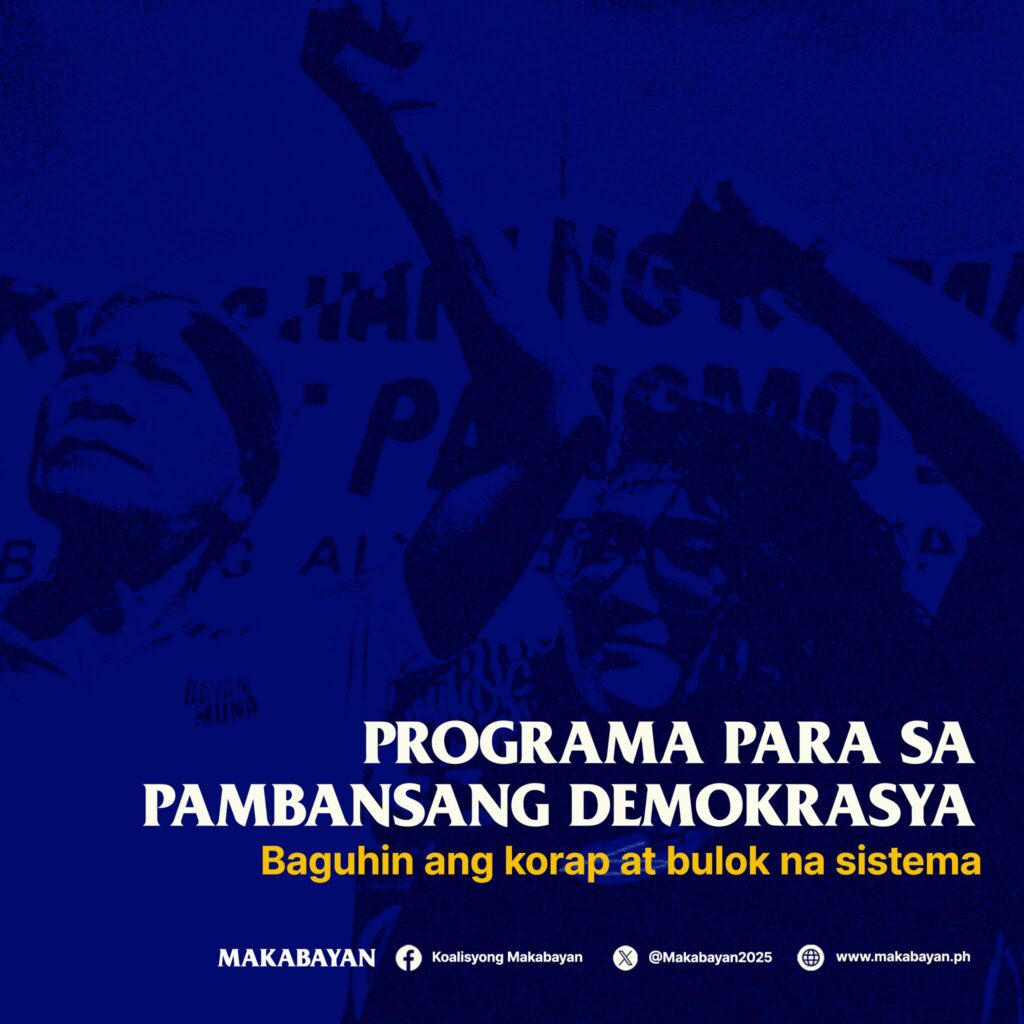By Diego Morra
“There are three kinds of lies: lies, damned lies, and statistics,” so said Mark Twain, who attributed it to British Prime Minister Benjamin Disraeli while other researchers say the phrase originated from Charles Dilke. Like pictures, they lie, too, and in a grand fashion when one thinks of artificial intelligence (AI), troll army disinformation and retcon, or even A24 films.
This question assumes greater urgency when seen in the context of the mass of economic data produced by the Department of Economy, Planning, and Development (DEPDev), the new moniker for the erstwhile NEDA as mandated by Republic Act No. 12145, which was enacted on April 10, 2025, as well as the Philippine Statistics Authority (PSA) in setting the amount needed for the daily subsistence of each Filipino. They deception started with the $1 per capita daily food consumption, a figure that cannot be defended considering the runaway price of rice, which DEPDev and PSA tag as responsible for a fifth of food inflation. There is also the deception perpetrated by neoliberals that leaving the market alone would cure issues income inequality, distribute incomes democratically and improve the economy.
Surely, both Oxfam Pilipinas and the Action for Economic Reforms (AER) one bit about the yarn promoted by the Foundation for Economic Freedom (FEF) that the Philippines is an autarky, refusing to join the “civilized economies” and suffering for this cardinal sin. The “unseen hand” refuses to bless the Philippines because it doesn’t want to allow national treatment to foreign capital and insists on producing food for its own population rather than importing from the worst protectionist economy like Donald Trump’s USA. Yet, there is a reason to believe that bad habits have refused to die. The ghost $600-million in the coffers of the Bangko Sentral was one illustration of such bad habit. As bad a habit as the British using Singapore as clearing house for opium destined for China during the dynastic period. Behind every great economy is a crime.
Now, Oxfam Pilipinas and AER have “conspired” to tell officialdom that despite its prophets of boom claiming that the country is on the road to becoming a medium-sized economy with great potential to achieve sterling fundamentals, still it cannot narrow the chasm that separates the poor from the not-so poor, the intermittently poor and the absolutely poor who cannot afford to buy lotto tickets and thoise doomed to be barred forever the casinos on reclaimed land. Let’s give Oxfam’s executive director Lot Felizco and her counterpart at AER, Men Sta. Ana III, some pat at the back for trying hard to argue that even questionable statistics carry with them some embedded truths. Of course, official stats would say that the Marcos Jr. administration is not only God’s greatest gift to Ricky Razon, Sabin Aboitiz, Ramon Ang, Manny Pangilinan and Inigo Zobel but also the streetwalkers, the sexually- abused kids online as well the people who live under the bridge over troubled water.
The new study revealed that the economic, health, and education inequalities, compounded by the disasters and crises, are pushing Filipinos further down the economic ladder, each rung being so creaky no one could use it to rise. Something akin to the hopeless case of Sisyphus, the disparity between the incomes of the top 10% and the bottom 40% of the population may have narrowed but such narrowing is not even as a tenth compared to an advancing ASEAN economy. The more it changes, the more it remains the same. In 2023, the top 10% of the population actually earned 115% of the incomes of the lowest 40%. Perhaps a more acute result would be gobsmacking if the incomes of the top 1% made up most of the money earned by the 10%. Worldwide, the Philippines is the 15th most unequal country and the most jarring inequality rate in Southeast Asia.
Entitled “Inequality at a Breaking Point: A Call to Embed Equality in the Philippines’ Economic Agenda,” the report was launched by Oxfam Pilipinas and AER on November 18 in Quezon City. Oxfam Pilipinas Executive Director Lot Felizco stressed, “as millions recover from Super Typhoon Uwan and Filipinos rightly demand answers about flood-control projects that did not protect them, we must ask a harder question: why are disasters, public service failures, and a slowing economy hitting the same people hardest?” She added: “Inequality is not an academic problem—it decides who lives and who dies when disasters and crises hit. Inequality is a silent and worsening crisis that plagues the country. That’s why everyone should work together to address and end it urgently.”
“While high growth has contributed to poverty reduction in East Asia, the Philippine experience highlights that growth alone is insufficient without equitable access to opportunities and strong redistributive policies,” said AER’s Men Sta. Ana III. The
The post-pandemic economic recovery was slower and fell short of government targets in 2023 and 2024. Recent forecasts revealed the same pessimistic outlook for 2025, with former Finance Secretary Ralph Recto admitting the 5% growth cannot be achieved. “With wages stagnating, the cost of goods rising, and stronger disasters frequenting the country, trying to remain afloat amid all these is such a challenge to most Filipinos,” Felizco stressed.
The inequality report by AER and Oxfam might as well start the ball rolling on assessing just how scientific government statistics are and how far has DEPDev and PSA gone in providing ethical statistics, and not fiddling with figures to satisfy preconceived biases. You do not prettify economic conditions to satisfy synchronic political demands to abide by the true, the good and the beautiful. The foremost exponent of such principle? Adolf Hitler. His key philosophical lieutenant? Martin Heidegger. The latter-day spawn? Donald Trump and his Blut und Bloden (Blood and Soil.) We’ve suffered under 14 years of martial law and we had a glut of little brown Joseph Goebbelses. Today, the struggle is to show that the country has not suffered from 45% decline in foreign direct investments (FDIs), the peso is blissfully rising to stay out of P59:$1 and, Good Lord, our farm exports to the US will not be burned by Trump’s torturing tariffs.




